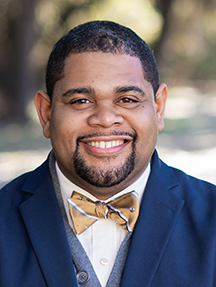• By Terrence Wilson, J.D.• Honoring the Arms that Lift Us – Southern Stories from Our Black Staff • February 2022 • 
Growing up in the former capital of the Confederacy, Richmond, Virginia, I was always distinctly aware of the complex history that defines my home. Stories of resilience and ingenuity intermingle with stories of exploitation and subjugation to build the foundation of the educational system where I was raised. It was a city, like many others, that was dealing with the ramifications of historically segregated and underfunded public schools.
I attended a school with far superior resources but with far less diversity than the demographics of my city and then, as now, the debate about history and its current impact was discussed and debated constantly in my educational environment. As I’ve grown older, I’ve learned the value of not only the home where we were born but the home that was created for me as a student.
My upbringing in this environment taught me the value of having a culturally-sustaining home. My culturally-sustaining home was comprised of family, friends and teachers who understood struggles of being a Black male student, and that provided me the resources and support for me to thrive. My culturally-sustaining home had parents who were willing to go beyond the curriculum and teach me about the contributions of Black people across history and in every field of contemporary endeavor. My culturally-sustaining home had Black peers with whom I could discuss the challenges of feeling othered and singled out on account of my race. My culturally-sustaining home included educators who could provide spaces where I could exist in my Blackness and feel celebrated. My culturally-sustaining home included school administrators who allowed me to create supportive clubs and experiences for other Black students.
As Black history month moves toward its conclusion, I hope that we all can continue to create culturally-sustaining homes and schools for our Black students; not only out of a sense of solemn respect for the past, but also out of boundless hope for the future.
[©2022, IDRA. This article originally appeared in the February 2022, special edition of Honoring the Arms that Lift Us – Southern Stories from Our Black Staff by the Intercultural Development Research Association. Permission to reproduce this article is granted provided the article is reprinted in its entirety and proper credit is given to IDRA and the author.]


